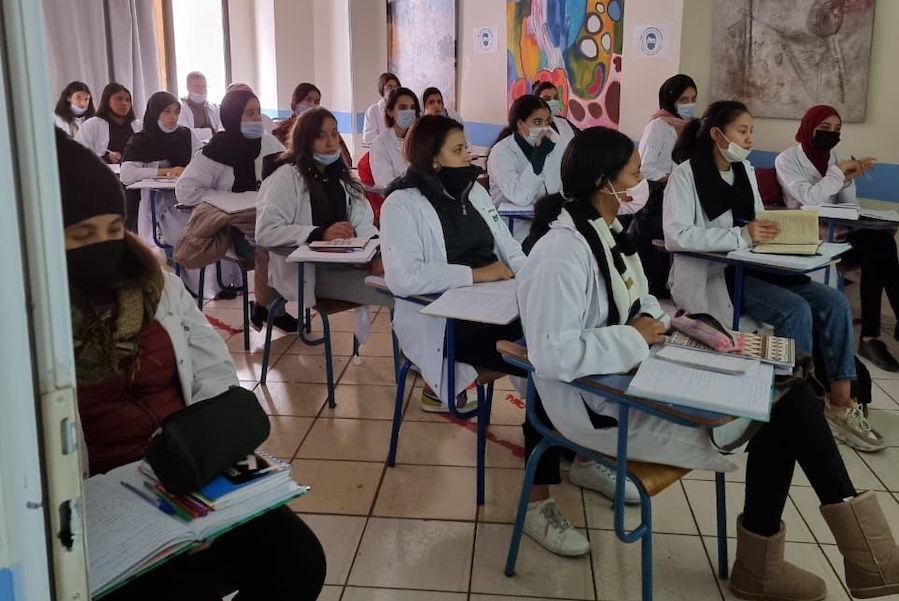The 2022 International Day of Education on Monday was marked by the Nereides de Bourbon Group, under the leadership of Prince Nereides de Bourbon, entering into a new partnership agreement with LutinX to bring educational and employment opportunities to displaced and underprivileged people.
The United Nations (UN) declared that “education is a human right, a public good and a public responsibility” when they created the International Day of Education, celebrated on 24th January each year.
With 258 million children worldwide currently not attending school, 617 million unable to read or do basic maths, and some four million refugee children out of school, the situation is “unacceptable” according to the UN.
In 2022, a ray of hope is being shone on this problem in the form of the Nereides de Bourbon Group, who in conjunction with blockchain platform company LutinX, have created “a disruptive project to ensure the access to education and more job opportunities for everyone through an advanced technology platform and engine implemented by a blockchain system.”
The project, named NDB Opera, is a new and innovative way for people to access free education as well as a way to help solve the thorny issue of economic immigration.
“Education is essential in empowering people and in refining socio-economic self-affirmation,” said Prince Nereides. “We are living in an unprecedent period for humanity, and education is no longer an option. If we want to forge our future, we must rethink education. We found a concrete remedy to inequality and we stand up for inclusion and equity for a fairer and more sustainable social environment. We live in the era of digital transformation, and I decided to harness technology to ensure equal access to education for everyone. The transition from blackboard to smart board gives us new opportunities to satisfy the growing demand of students and workers to create a learning environment where everything connects.”
The use of blockchain technology is indeed a unique way of linking potential employees to employers, as well as creating a secure space for the educational credentials of the users.
According to the Prince, using blockchain has several advantages for students, companies, and educational institutions.
Students will have access to remote learning programmes anywhere, and will have their credentials saved in the cloud, erasing the need for them to carry a physical diploma or certificate on hand at all times.
“It is an updated ‘personal kit’ that can be carried and consulted wherever the person is in the world,” explained the Prince. “This provides students with a lifetime of online certificates with probative value which is even more valuable for labour migrants.”
Educational establishments also benefit in terms of secure and durable storage, allowing their student records to be digitally stored and accessed, thus saving precious space and cost. It also protects against computer failures and data loss, as blockchains are decentralised and therefore separate from a school’s management and backup systems.
Finally, using this system, companies can be assured the credentials of candidates are true and verifiable.
“For companies, authentication of diplomas can be a real headache for corporate recruiters,” said Prince Nereides. “In an increasingly competitive job market, fraud with false diplomas and approximations during interviews still account for a large proportion of applications. The blockchain is a simple and direct tool for HR departments to ensure the authentication and tamper-proofing of diplomas.”
The intended end result of this elaborate project is that illegal immigration will be stifled. The students will have the ability to get jobs through legal channels, in and out of their home nations, thus stemming the current refugee crisis, as well as lessening the possibilities for human trafficking and terrorism. Mostly, it will give hope and concrete solutions to desperate people who currently have no options.
“If you give a person all necessary tools to carry out a qualified activity, you give them a job and a house, and you ensure them professional and cultural trainings, you do good for them, for the employer, for their family which has remained in the country of origin, but you also contribute to the socio-cultural and economic development of the destination country,” declared Prince Nereides.
SEE ALSO:
“Education has been neglected globally”
Passing through Monaco: Joblio Founder Jon Purizhansky
